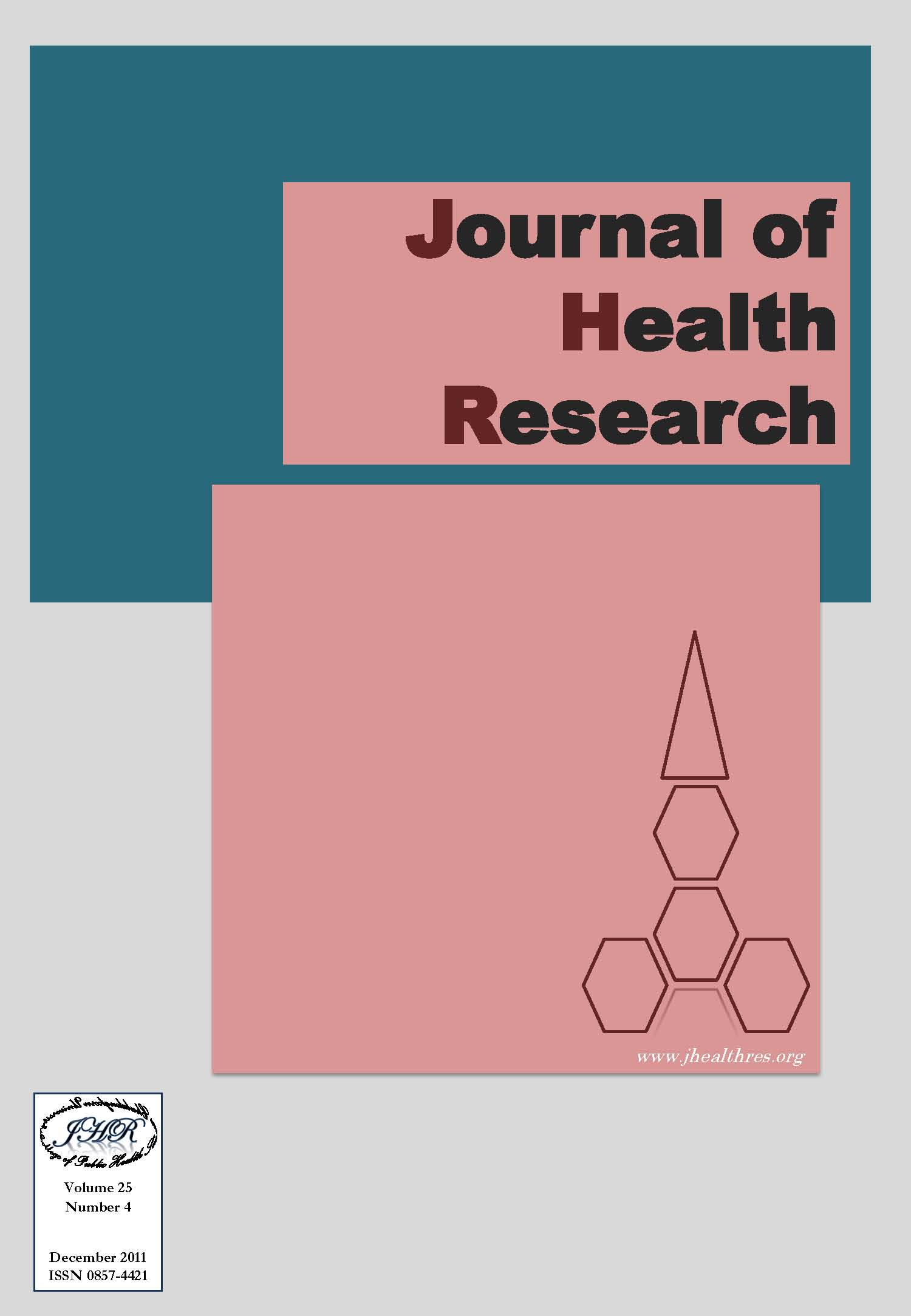Factors Associated with Glycemic Control in Type 2 Diabetes Patients at Primary Care Units, Pathumrat District, Roi-Et Province, Thailand
Keywords:
Diabetes mellitus, Glycemic control, Factors associated, Primary careAbstract
A cross-sectional study design was used to determine factors associated with glycemic control in type 2 diabetes mellitus (DM) patients who were referred to 13 Primary Care Units at Pathumrat District, Roi-Et Province, Thailand. The population of this study are 307 patients chosen by systematic sampling from 1,071 with type 2 DM in Primary Care Units. A questionnaires was used to collect information about the factors associated with glycemic control in type 2 DM patients including demographic characteristics, knowledge of diabetes, healthcare behaviors and psychosocial factors, and the glycemic level according to medical records. The data were collected in April, 2011. Statistical analysis included frequency, percentage, standard deviation, mean, median and the associations between study variables were tested by Chi- square test, Pearson Correlation and Spearman rank test.
The results showed that mean age of the subjects was 58.72±6.49 years, with 238 women and 69 men. The duration of DM was 6.24± 4.10 years. Approximately 42.7% of the subjects were obese (mean BMI 25.36±3.44). The mean glycosylated hemoglobin (HbA1C) level was 8.26±1.96% and the proportion of patients who had good control (HbA1C<7%) was 26.1% while 73.9% of the subjects had poor control. Statistically significant factors associated with glycemic control were; duration of diabetes (r=0.185, p<0.001), dietary habit (r=-0.220, p-value<0.001) and drug compliance (r=-0.469, p<0.001).
This study has indicated that care among patients with type 2 DM treated in primary care units was not achieved. The empowerment of DM patients in primary care units is a great challenge. Future studies could focus on effective strategies for DM care including drug compliance and diet control.







